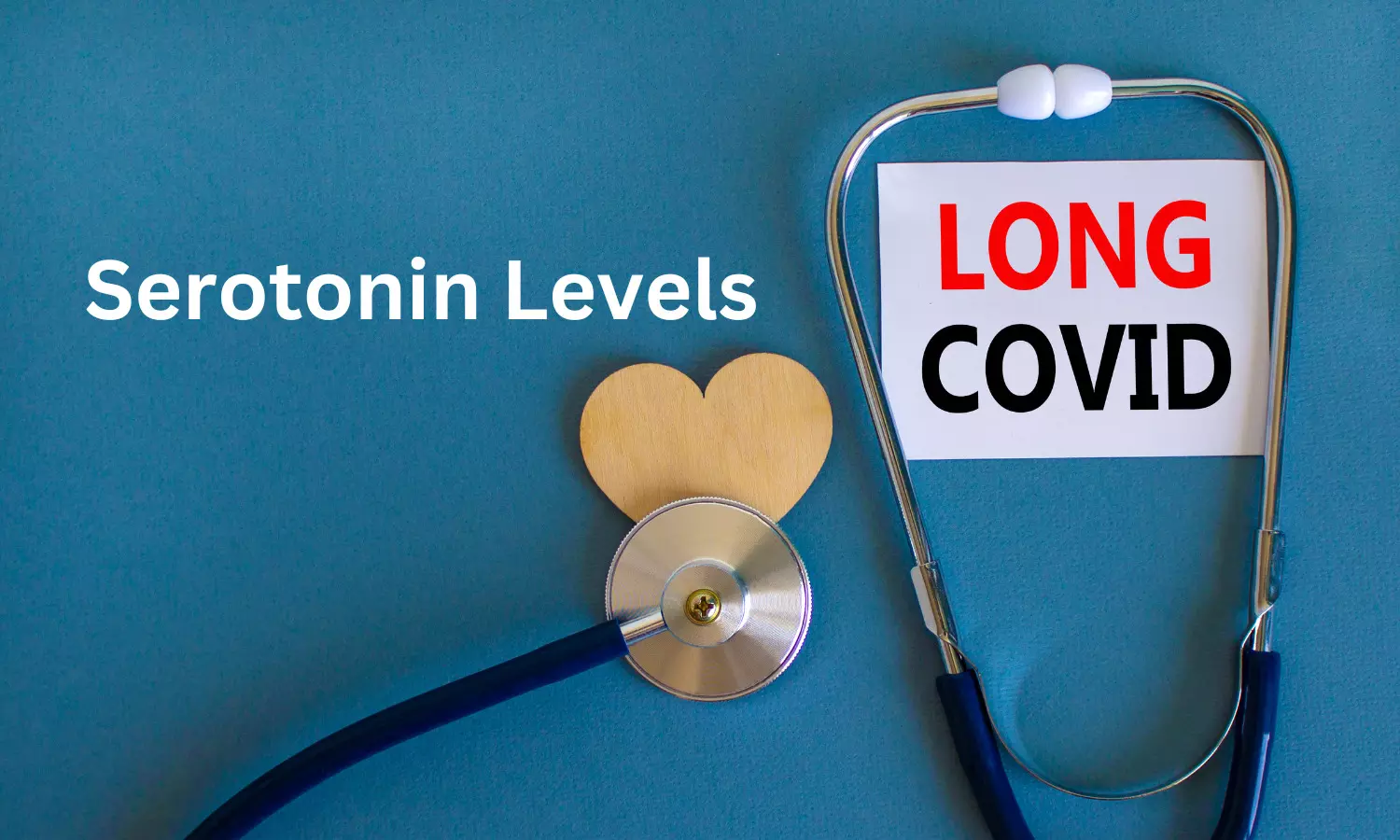Long covid linked to declined serotonin levels along with viral persistence

Long Covid or Post-acute sequelae of COVID-19 (PASC) pose a significant global health challenge. Several studies reports pathophysiological highlights of COVID-19, activation of inflammatory cascade can be mentioned. They could cause dysfunction in various organs including the brain with some symptoms such as olfactory and taste disorders, headache, dizziness, myalgia, delirium, confusion, irritability, the altered consciousness, depression, anxiety, stress, and insomnia.
The pathophysiology is unknown, and no effective treatments have been found to date. Researchers in the current study proposed a mechanism that links all four hypotheses in a single pathway and provides actionable insights for therapeutic interventions.
The study published in Cell journal reports linking viral infection with reduced levels of serotonin, a neurotransmitter involved in learning, memory, and mood, has proposed a new potential mechanism underlying post–COVID-19 condition. Also known as long COVID, the condition involves symptoms such as fatigue, memory loss, and cognitive impairment.
Researchers evaluated from the human participants, mice, and organoid cultures, and found that long COVID was tied with a decline in serotonin. A viral reservoir in the gut appeared to trigger inflammation that decreased intestinal absorption of tryptophan, serotonin’s precursor molecule.
The key findings of the study are
• Researchers find that PASC are associated with serotonin reduction. Serotonin activity supports vagus nerve function, among other roles.
• In the study, serotonin loss was associated with lower nerve activity. Dysfunction in the vagus nerve was linked with characteristic long COVID symptoms such as memory loss and hippocampal dysfunction.
• Viral infection and type I interferon-driven inflammation reduce serotonin through three mechanisms: diminished intestinal absorption of the serotonin precursor tryptophan; platelet hyperactivation and thrombocytopenia, which impacts serotonin storage; and enhanced MAO-mediated serotonin turnover.
• Peripheral serotonin reduction, in turn, impedes the activity of the vagus nerve and thereby impairs hippocampal responses and memory.
These findings provide a possible explanation for neurocognitive symptoms associated with viral persistence in Long COVID, which may extend to other post-viral syndromes.
“Clinicians treating patients with long COVID have been relying on personal reports from those patients to determine if their symptoms are improving,Sara Cherry, PhD, an author of the study published “Now, our research shows that there are biomarkers we may be able to use to match patients to treatments or clinical trials.” They ended.
Reference: Andrea C. Wong, Ashwarya S. Devason, Iboro C. Umana; Serotonin reduction in post-acute sequelae of viral infection; Cell; October 16, 2023DOI:https://doi.org/10.1016/j.cell.2023.09.013
from Medical News, Health News Latest, Medical News Today - Medical Dialogues | https://ift.tt/87NTVXk
Comments
Post a Comment